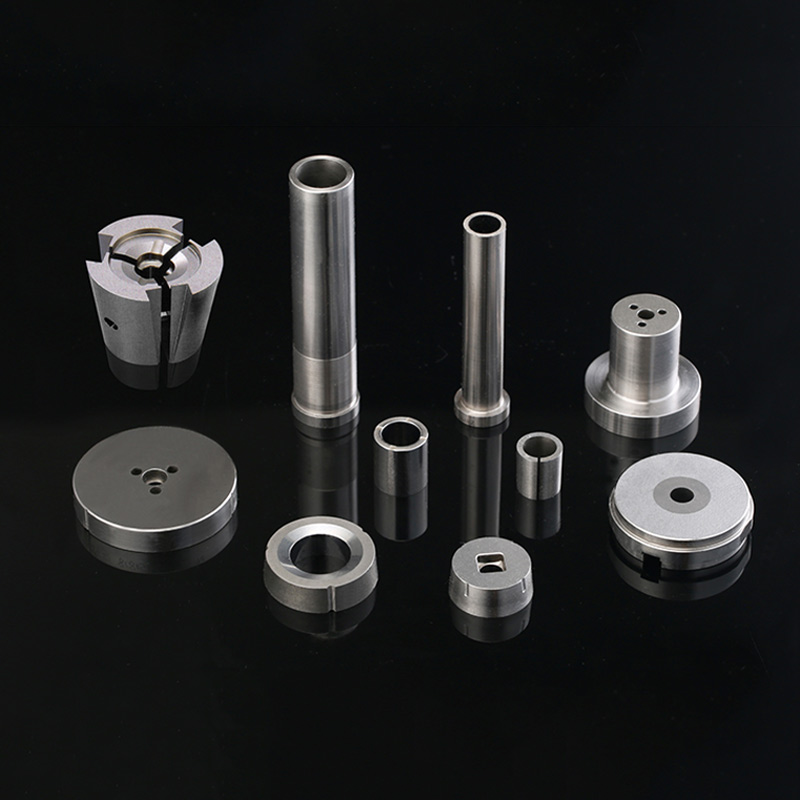In the aerospace industry, where safety, reliability, and performance are paramount, the smallest mistake can have far-reaching consequences. This is particularly true in the manufacturing of fasteners, which play a critical role in holding together various components of an aircraft, satellite, or spacecraft. Fastener Dies—precision tools designed to form, shape, and cut materials into the desired fastener shape—are essential in ensuring that fasteners meet the stringent demands of aerospace manufacturing. In this article, we will explore the significance of precision in Fastener Dies for aerospace applications and why even the tiniest error can compromise safety and performance.

The Role of Fasteners in Aerospace Manufacturing
Fasteners, such as bolts, nuts, screws, and washers, are integral components used throughout aerospace manufacturing. From the assembly of aircraft wings to securing vital parts in spacecraft, fasteners ensure that various elements stay connected and function as intended. The high-pressure environments, extreme temperatures, and vibrations encountered during flight demand that these fasteners are made with impeccable precision and durability.
Aerospace manufacturers rely heavily on Fastener Dies to produce high-quality fasteners that meet strict industry standards. These dies must ensure that the fasteners are formed with absolute accuracy, so they can withstand the high stresses and forces placed on them. Any deviation from the specified dimensions, material properties, or design can lead to catastrophic failure or a malfunction in critical systems.
Precision: The Key to Reliability and Safety
In aerospace applications, even the slightest imperfection in a fastener can lead to failure. Aircraft and spacecraft are subjected to extreme forces, including high-speed airflow, temperature fluctuations, and mechanical stress. Therefore, fasteners must be reliable, durable, and precisely manufactured to handle these conditions without failure.
Precision fastener dies are designed to ensure the consistent production of fasteners with the exact specifications required by aerospace engineers. A single millimeter of deviation or an improperly shaped hole can result in a fastener that does not fit properly, reducing its ability to secure components as intended. For example, an incorrect bolt size or poorly formed threads could cause the fastener to loosen over time, resulting in vibration, mechanical failure, or even structural collapse in extreme cases.
In the aerospace industry, where every component must meet rigorous quality standards, precision is non-negotiable. A fastener die that produces parts with tolerances of only a few microns can make all the difference in ensuring the structural integrity of an aircraft or spacecraft.
Material Selection and Die Design
The selection of materials for fastener dies used in aerospace manufacturing is also crucial. Aerospace fastener dies are typically made from high-strength materials such as Tungsten Carbide, high-speed steel (HSS), or even specialized alloys that can withstand extreme operating conditions. These materials ensure that the dies maintain their precision over an extended service life, even under the intense wear and tear that comes from producing high volumes of fasteners.
Furthermore, the design of fastener dies for aerospace applications is highly specialized. These dies must account for the unique shapes, sizes, and mechanical properties of fasteners used in aircraft and spacecraft assembly. The design must not only accommodate the complex geometry of the fasteners but also ensure that the production process allows for minimal defects, ensuring fasteners are produced with high accuracy and minimal material waste.
The Importance of Tolerance and Consistency
In aerospace manufacturing, the smallest variations in fastener dimensions can have serious repercussions. Tolerances—the allowable deviation from a specified dimension—must be tightly controlled to ensure that the fasteners fit and function properly. Aerospace manufacturers rely on fastener dies that can maintain these tight tolerances consistently across large production runs.
For example, aerospace fasteners may require thread tolerances as small as a few thousandths of an inch. Any deviation from this precision can result in parts that either do not fit or fail under stress, potentially leading to catastrophic consequences. Precision fastener dies ensure that each fastener produced meets the required specifications and can perform optimally in high-stress environments.
Enhancing Production Efficiency
While precision is essential for safety and performance, it also plays a critical role in enhancing production efficiency. In aerospace manufacturing, the demand for fasteners is high, and production volumes are often large. Precision fastener dies allow manufacturers to produce high volumes of fasteners quickly and accurately, reducing downtime and material waste.
The efficiency of precision fastener dies is further enhanced when integrated with advanced technologies such as automated punching systems and CNC machining. These systems ensure that each fastener is produced with consistent quality and minimal human intervention, allowing manufacturers to meet tight production schedules without compromising safety or quality.
The Consequences of Inaccurate Fastener Dies in Aerospace
The risks associated with inaccurate fastener dies in aerospace manufacturing are significant. If a fastener fails, it can lead to a series of problems, ranging from equipment malfunction to catastrophic failure during flight. For instance, a poorly manufactured fastener could loosen over time, leading to a structural failure or loss of control. In the worst case, it could compromise the safety of the passengers or crew aboard an aircraft or spacecraft.
In aerospace applications, regulatory bodies such as the Federal Aviation Administration (FAA) and the European Union Aviation Safety Agency (EASA) set stringent requirements for the manufacturing of fasteners. These agencies require manufacturers to adhere to strict quality control standards and ensure that the fasteners used in aircraft are free of defects and meet the necessary tolerances. Any failure to meet these standards can result in costly delays, recalls, and even legal consequences.
Precision fastener dies are critical components in aerospace manufacturing, where the demands for accuracy, reliability, and safety are uncompromising. The high precision of these dies ensures that fasteners are produced with the exact specifications required to withstand the extreme conditions encountered in aerospace environments. The impact of even the smallest error can be catastrophic, making it essential that fastener dies are engineered and manufactured to the highest standards.











